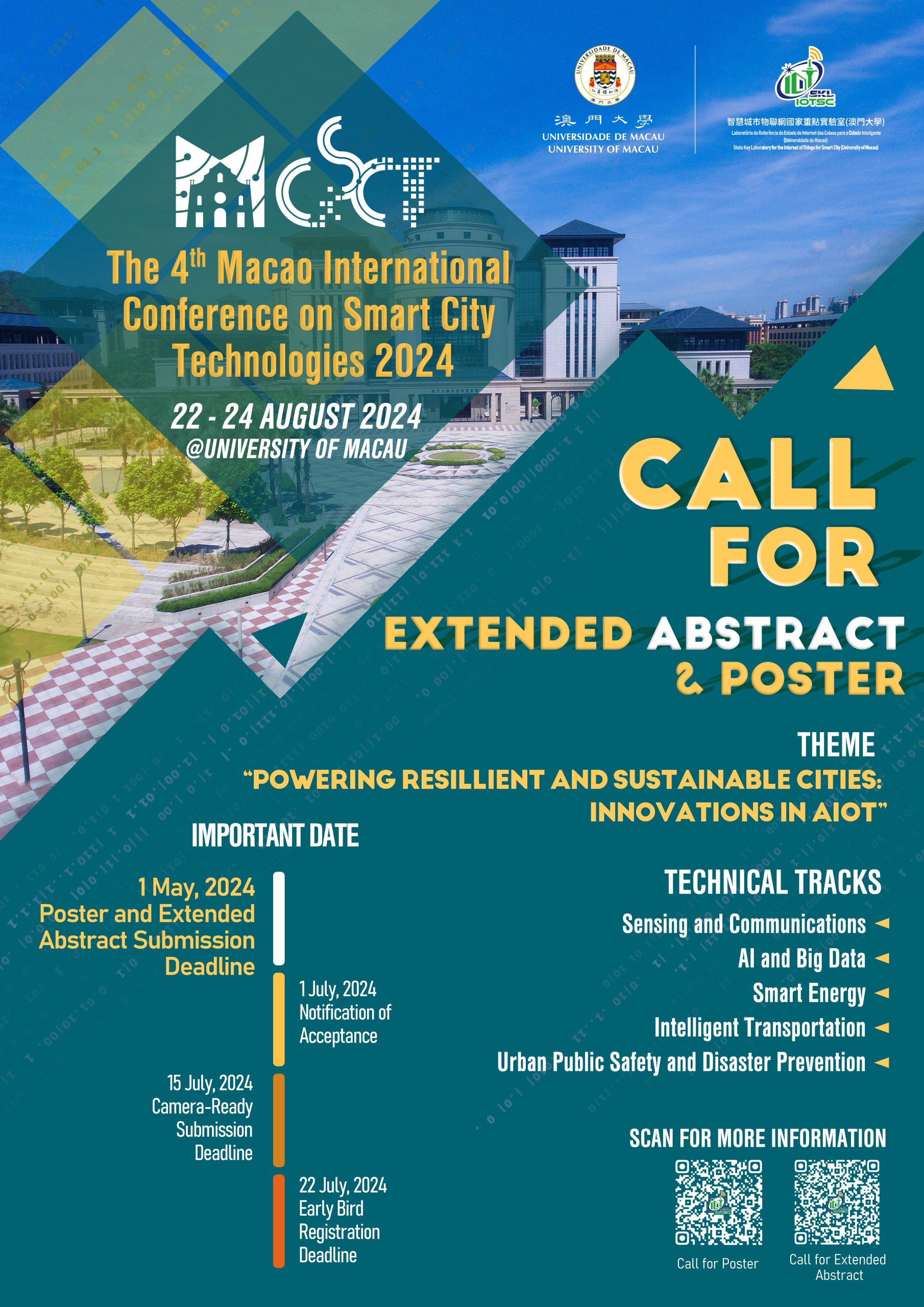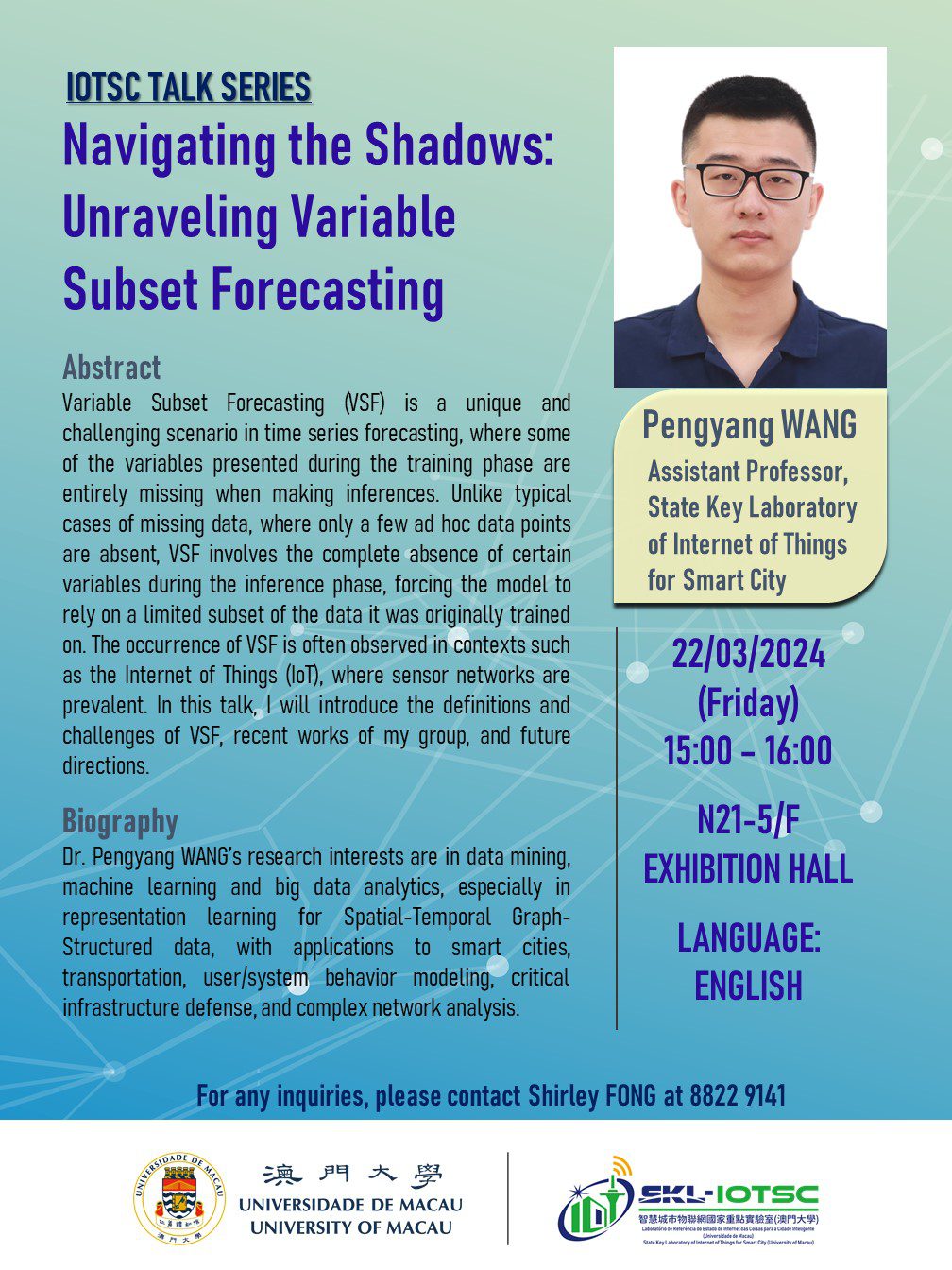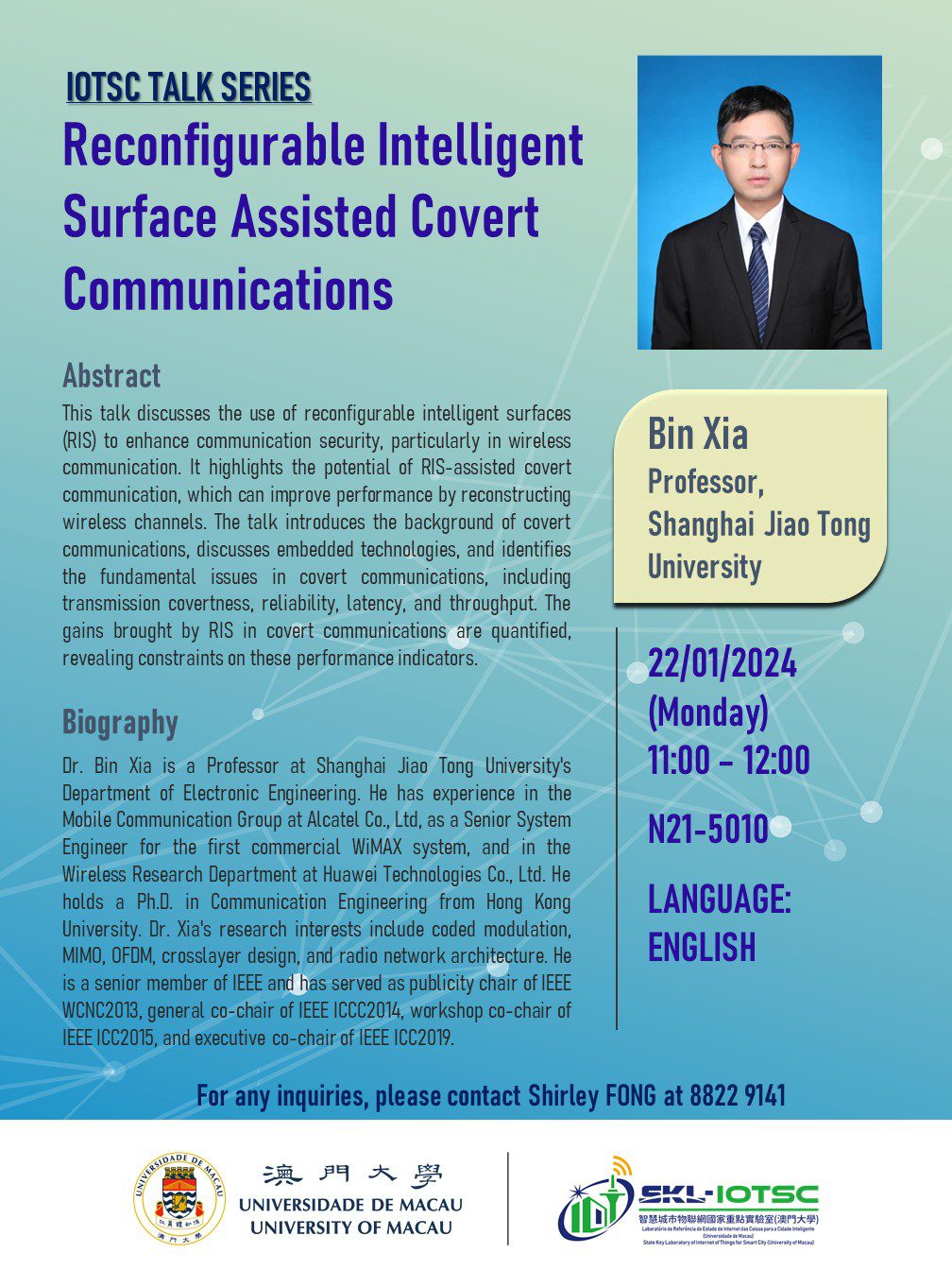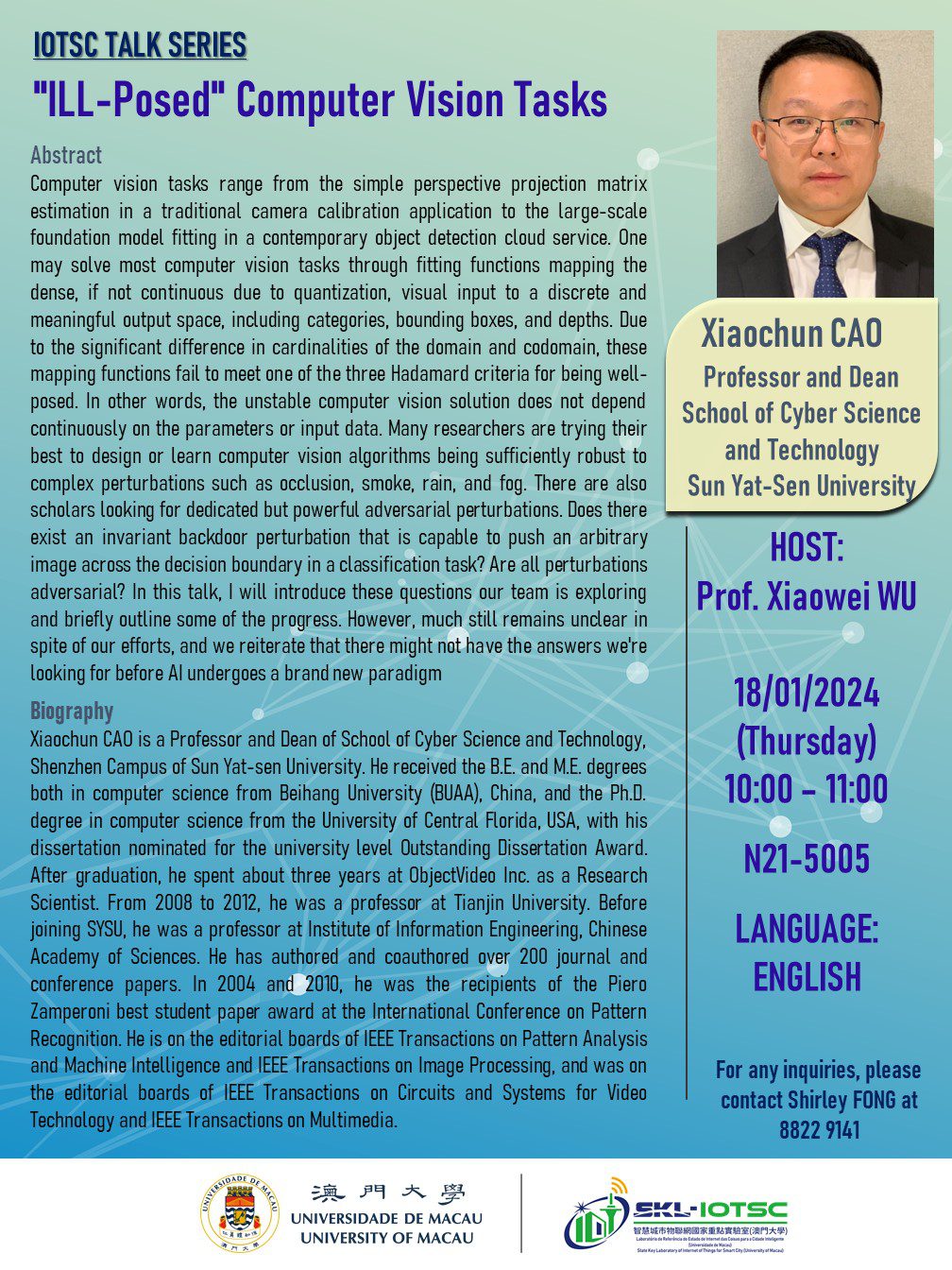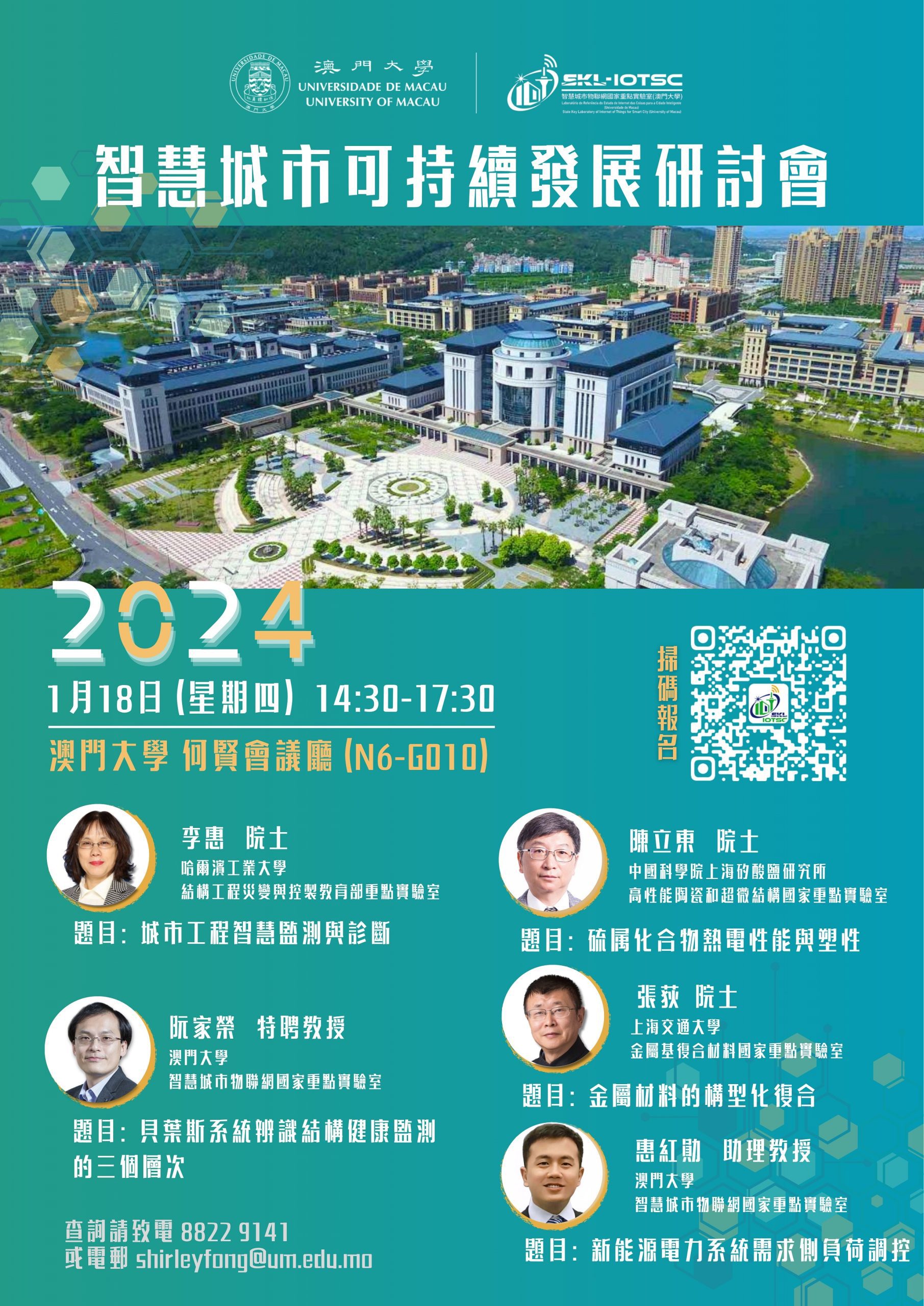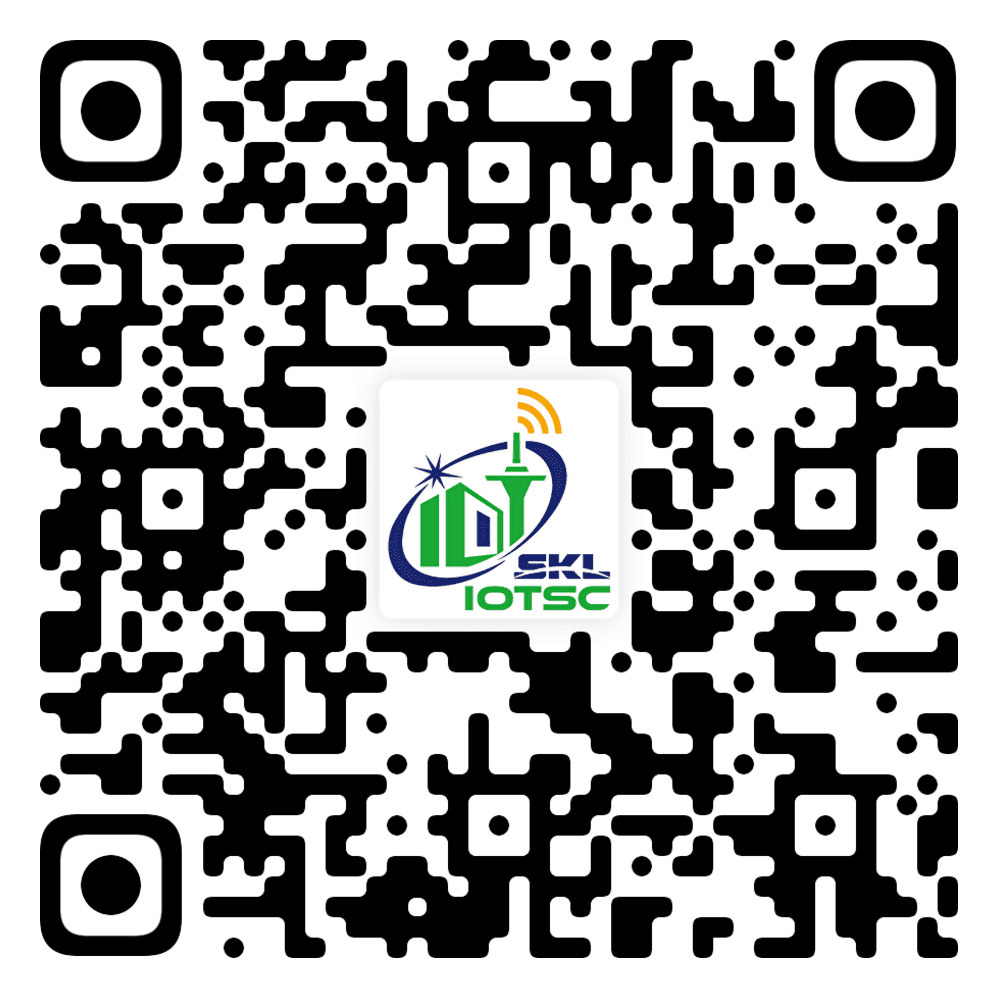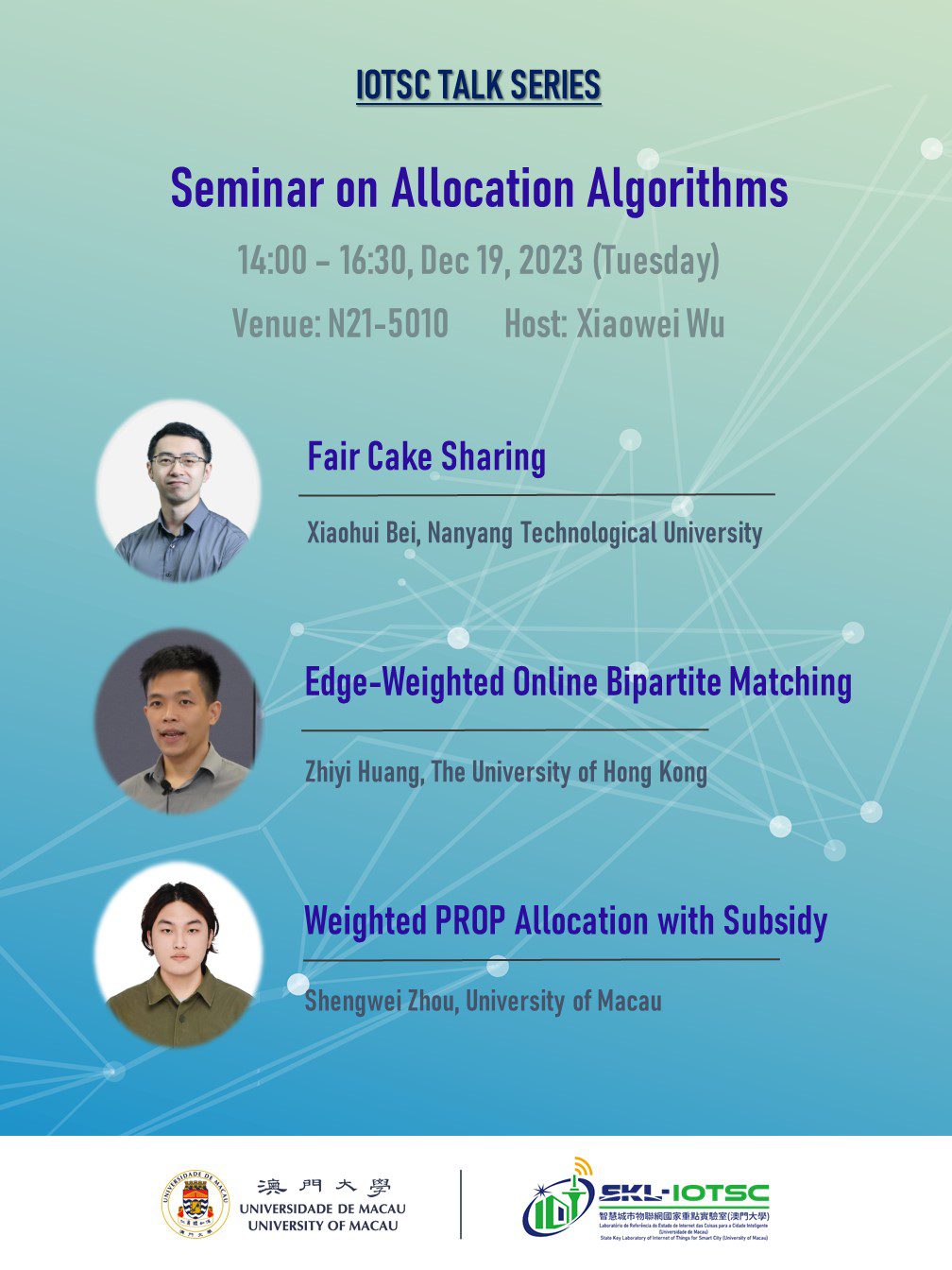IOTSC TALK SERIES: Assessing Urban Flooding Risks Using Numerical Model and Digital Twin Technology
shirleyfong2024-05-09T00:00:10+08:00
Dear Colleagues and Students,
The State Key Laboratory of Internet of Things for Smart City would like to invite you to join our “IOTSC Talk Series” on 12/04/2024 (Friday). We are pleased to invite Prof. Liang GAO from IOTSC and FST as the speaker.
Assessing Urban Flooding Risks Using Numerical Model and Digital Twin Technology
Speaker: Prof. Liang GAO, State Key Laboratory of Internet of Things for Smart City and Faculty of Science and Technology, University of Macau
Date: 12/04/2024 (Friday)
Time: 16:00 – 17:00
Language: English
Venue: N21-5007 (Exhibition Hall)
Abstract:
A tropical cyclone or rainstorm event may pose severe threat of flooding hazard to coastal cities. In this seminar, a multi-scale hydrological and hydrodynamic coupled numerical model will be introduced. The model could accurately capture the storm surge and the following overtopping/dam breach flooding processes, yielding accurate prediction of river discharges, water level fluctuations, and the compound floods. The future scenarios of compound floods under the impact of tropical cyclone and rainfall are comprehensively analyzed. The information, simulated hazard scenarios and simulation methods are compiled, embedded and displayed on a digital twin platform with an interactive interface for the users, which is expected to be useful for early warning and hazard prevention.
Speaker’s Bio:
Dr. Liang GAO is currently an assistant professor with the SKL-IOTSC, University of Macau. Her research interests focus on numerical modelling of multi-hazards in coastal mountainous area. She serves as the reviewer of many journals such as JH, RSE, WRR and so on, and she is the editorial board member of Georisk (SCI, JCR:Q1), Underground Space (SCI, JCR:Q1), and Journal of Intelligent Construction.
For enquiries: Tel: 8822 9141
Email: shirleyfong@um.edu.mo
Best Regards,
State Key Laboratory of Internet of Things for Smart City
